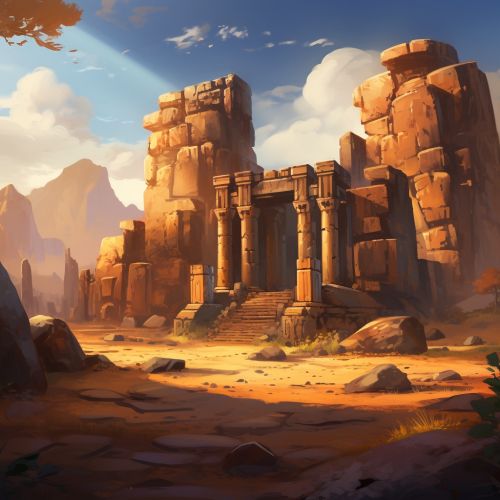Eridu
History
Eridu, considered the earliest city in southern Mesopotamia, is located in present-day southern Iraq. The city is thought to have been founded circa 5400 BC, and archaeological evidence suggests that this area was inhabited during the Ubaid period (6500 to 3800 BC).


The city of Eridu was the center of the cult of the Sumerian god Enki, the god of water, knowledge, mischief, and creation. The city's religious significance continued to grow as it expanded from a small agricultural village to a major city. The city's temple, known as the E-abzu or "House of the Aquifer", was dedicated to Enki and was considered the center of the city.
Archaeological Discoveries
Archaeological excavations at Eridu have revealed a sequence of temple structures dating back to the Ubaid period. These temples provide key insights into the architectural and religious practices of the early Sumerians. The most significant of these structures is the E-abzu temple, which was rebuilt and expanded many times over the centuries.
Cultural Significance
In Sumerian mythology, Eridu was believed to be the home of the gods before mankind was created. The city was considered a sacred place, and its temples were major centers of religious activity. The city's cultural significance extended beyond its religious importance, as it was also a center of learning and knowledge.
Decline and Abandonment
Despite its cultural and religious significance, Eridu was gradually abandoned over the centuries. The reasons for this abandonment are not entirely clear, but it is likely that changing environmental conditions and political instability played a role. By the time of the Babylonian period (1894 to 539 BC), the city was largely deserted.
Legacy
The legacy of Eridu continues to be felt today. The city's religious and cultural significance has made it a key site for the study of early Mesopotamian civilization. Moreover, the city's association with the god Enki has led to its inclusion in various literary and mythological texts.
